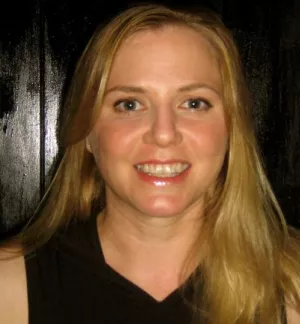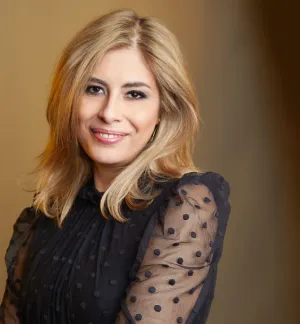On June 2nd, Harvard Kennedy School’s Future of Diplomacy Project and Harvard Advanced Leadership Initiative Fellow, Carla Dirlikov Canales, hosted the United Nations Educational, Scientific and Cultural Organization (UNESCO) Director-General Audrey Azoulay for the third installment of the Future of Cultural Diplomacy seminar series. Ambassador Nicholas Burns, Kennedy School professor and Faculty Chair of the Future of Diplomacy Project welcomed and introduced Director-General Azoulay. Carla Dirlikov Canales and Alison Hillegeist, Deputy Director for the Future of Diplomacy Project, moderated the discussion.
Elected to her role in 2017, Director-General Azoulay offered her unique perspective on cultural diplomacy as the leader of one of the world’s largest multilateral agencies focused on these issues. She described how cultural diplomacy “opens spaces for dialogue” and “creates links that survive political cycles.” She said that cultural diplomacy is “most powerful when it can create dialogue in tense or post-conflict situations.” As an example, she recalled when North and South Korea jointly added/signed the traditional ssirum/ssireum wrestling to UNESCO’s list of Intangible Cultural Heritage of Humanity in 2018. She also referenced UNESCO’s addition of shared culinary traditions – specifically couscous – of Algeria, Mauritania, Morocco, and Tunisia in 2020.
Director-General Azoulay emphasized that culture and cultural diplomacy must have a seat at the “adult table” of foreign policy and diplomacy discourse. She cited past success when, in 2017, the United Nations Security Council first linked security and cultural heritage with the unanimous adoption of Resolution 2347 that focused exclusively on cultural heritage. She described how culture “goes directly to the heart of the people” even though it is often underestimated by governments. She continued, “when cultural issues are not taken into account …you miss one of the long-term, structural ways to defend a model of society and values.” She hopes to see this recognition reflected at the 2021 G20 Rome Summit where, for the second year in a row, there will be a specific ministerial track for culture.
When asked about the global emerging issues that cultural diplomacy can address, Director-General Azoulay is hopeful that cultural diplomacy tools will be increasingly utilized particularly for nature and biodiversity preservation, efforts around sustainability, and for scientific and educational diplomacy. She also emphasized UNESCO’s laser focus on girls’ education and gender equity in education. For these critical issues and for all UNESCO’s priority areas, she stressed the importance of the political involvement of all member states and, increasingly, the private sector, “to be effective in these emerging issues, the issues of tomorrow, and to create international consensus on … issues.”
The Future of Cultural Diplomacy seminar series explores how to harness the power of culture to advance foreign policy objectives. It aims to fill an important but often overlooked angle in current foreign policy debates and add a valuable dimension to co-curricular discussions in international affairs at Harvard and beyond. This series was conceptualized by Carla Dirlikov Canales, an Arts Envoy for the U.S. Department of State, a world-renowned opera singer, and current Fellow at Harvard University’s Advanced Leadership Initiative. It is co-sponsored by the Future of Diplomacy Project at Harvard Kennedy School.
Previous seminars in this series include a seminar on the “Future of Cultural Diplomacy” with Nancy Szalwinski, Director of Cultural Programs at the U.S. State Department’s Bureau of Educational and Cultural Affairs, and a seminar on “Soft Power and the Practice of Diplomacy” with Ambassador (ret.) Caroline Kennedy and Dr. Joseph Nye, University Distinguished Service Professor, Emeritus at Harvard.






